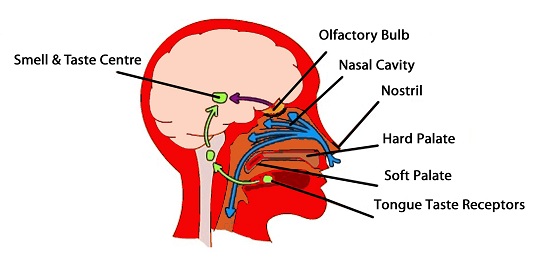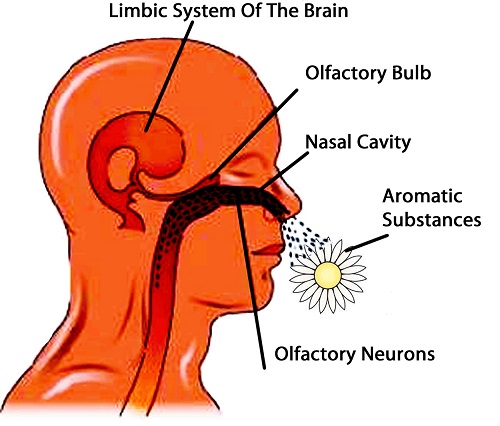Positive Health Online
Your Country

Sense of Smell: Loss May Predict Death within Five Years
listed in medical conditions, originally published in issue 223 - July 2015
Losing your sense of smell can be very depressing and isolating. It means missing out on many experiences most of us take for granted, such as smelling fresh flowers, perfume or the scent of food or a loved one.
www.theguardian.com/science/neurophilosophy/2014/oct/01/your-nose-knows-death-is-imminent#img-1
Problems with the sense of smell increase as people get older, and they are more common in men than women. In one study, nearly one-quarter of men ages 60–69 had a smell disorder, while about 11 percent of women in that age range reported a problem.

Smell also plays an important role in how you taste things. Many people with anosmia lose interest in food because 80% of the flavor of food comes from its smell.
In general, anosmia is usually caused by either a problem with odours getting to the top of the nose (because of swelling or a blockage in the nose) or a problem with nerve signals from the nose to the brain. Thousands of people are born without a sense of smell because of a faulty gene. This is known as congenital anosmia. People with congenital anosmia have a lifelong inability to smell and have no concept of what a smell even is.
According to new research, the sense of smell is the canary in the coal mine of human health.
In 2005-6, researchers at the University of Chicago asked all the participants to perform a simple test that involved identifying five common odours (rose, leather, fish, orange, and peppermint), using the number of incorrectly identified odours as a score of the severity of smell loss.
Five years later, the researchers tracked down as many of the same participants as they could, and asked them to perform this smell test a second time. During the five-year gap between the two tests, 430 of the original participants (or 12.5% of the total number) had died. Of these, 39% who had failed the first smell test died before the second test, compared to 19% of those who had moderate smell loss on the first test, and just 10% of those with a healthy sense of smell.
In other words, those participants who failed the first smell test completely were four times as likely to die within five years than those who correctly identified all five odours. This held true when other factors known to impact smell - such as race, sex, mental disorders, and socioeconomic status - were taken into account, and even milder smell loss was associated with slightly increased odds of impending death.
Anosmia predicted death more accurately than did a diagnosis of cancer, heart failure or lung disease, the only other common cause of predicting it more accurately being severe liver damage. But the researchers stress that it is unlikely to be a cause of death itself, arguing only that it is a harbinger for what is to come, and suggesting two possible reasons why this might be so.

The tip of the olfactory nerve, which contains smell receptors, is the only part of the human nervous system that is continuously regenerated by stem cells. The production of new smell cells declines with age, causing a gradual reduction in your ability to detect and to discriminate odours. Loss of smell may indicate that the body is entering a state of disrepair, and is no longer capable of repairing itself.
The olfactory nerve is also the only part of the nervous system that is exposed to the open air. As such, it offers poisons and pathogens a quick route into the brain, and so losing smell could be an early warning of something that will ultimately cause death.
When the sense of smell is impaired, some people change their eating habits. Some may eat too little and lose weight while others may eat too much and gain weight. As food becomes less enjoyable, they might use too much salt to improve the taste. This can be a problem if you have or are at risk for certain medical conditions, such high blood pressure or kidney disease. In severe cases, loss of smell can lead to depression.
A smell disorder can be an early sign of Parkinson’s disease, Alzheimer’s disease, or multiple sclerosis. It can also be related to other medical conditions, such as obesity, diabetes, hypertension, and malnutrition.
References:
Pinto, J. M. et al. (2014). Olfactory Dysfunction Predicts 5-Year Mortality in Older Adults. PLOS ONE, 9(9): e107541.doi:10.1371/journal.pone.0107541
Why NIDCD Supports Taste and Smell Research www.nidcd.nih.gov/about/plans/2012-2016/Pages/Why-NIDCD-Supports-Taste-and-Smell-Research.aspx
Comments:
-
No Article Comments available